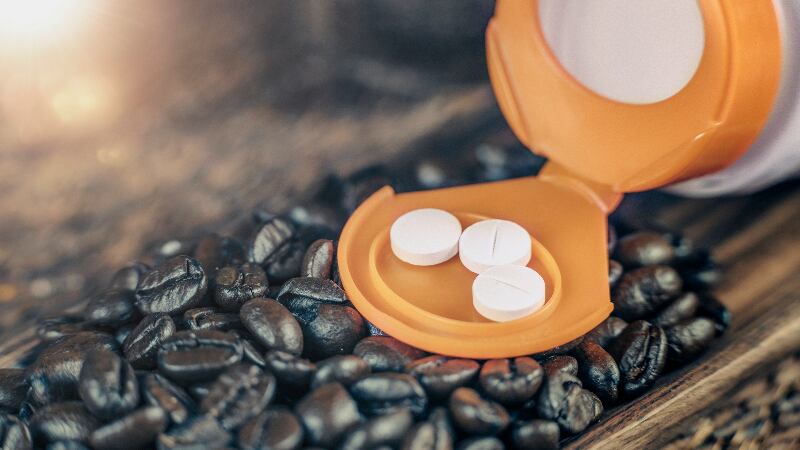The performance-enhancing effects of caffeine consumption on resistance exercise outcomes have been a topic of debate due to inconsistent results in previous studies.
The effect of caffeine supplementation on hormonal responses has been shown to vary considerably among individuals. This variation is thought to stem from genetic disparities, particularly genetic variants (DNA polymorphisms), such as CYP1A2 and ADORA2A, responsible for caffeine metabolism.
In particular, the ADORA2A gene encodes the A2A adenosine receptor (A2AR), which plays an important role in many biological functions, including sensitivity to caffeine.
A randomised, double-blind, crossover, placebo-controlled trial, involving 30 men who have undergone at least one year of resistance training, was conducted to assess the influence of ADORA2A, specifically its rs5751876 polymorphism, on testosterone (TS) and growth hormone (GH) levels following caffeine supplementation.
The participants were categorised as light caffeine consumers, and genotyping was carried out to ascertain the genetic profile of each participant.
One hour before engaging in resistance exercise, they were administered either 6mg of caffeine per kg of body mass or a placebo (maltodextrin). Levels of TS and GH were measured before, immediately after, and 15 minutes after resistance exercise.
After a seven-day washout period, the same protocol was repeated.
It was found that TT genotype carriers in the intervention group exhibited significantly heightened GH levels, compared to those with the TC/CC genotype — prior to testing (p = 0.012), immediately after testing (p = 0.007), and 15 minutes post-exercise (p = 0.001).
Post-exercise GH concentrations in participants with the TT genotype were also significantly elevated, compared to the placebo group (p = 0.05).
Similarly, TS levels in the intervention group were notably higher in those with the TT genotype than carriers of the TC/CC genotypes, immediately after exercise (p = 0.001) and 15 minutes post-exercise (p = 0.026).
“In this study, it appears that athletes with the TT genotype are likely to experience more pronounced anabolic effects following resistance activity with caffeine consumption.
“Evidence suggests that higher TS levels may provide an athletic advantage. Therefore, carrying the ADORA2A rs5751876 TT genotype may be beneficial for power performance,” the researchers wrote.
In addition, the researchers conducted a cross-sectional study to examine the resting TS and GH levels in the sera of 94 elite athletes who were light caffeine consumers.
In this group of athletes, carriers of the ADORA2A TT genotype had significantly higher TS (p = 0.0125) and GH (p = 0.0365) levels, compared to those with TC/CC genotypes, validating results from the RCT.
“There is growing evidence that various genetic polymorphisms may underlie individual responses to dietary supplements, including caffeine and whey protein. In our study, we demonstrated that the ADORA2A gene rs5751876 polymorphism may modify the effect of caffeine intake on hormonal responses to resistance exercise.
“We believe that the cross-sectional study may represent the chronic effect of caffeine intake on TS and GH levels in athletes who were light caffeine consumers, thus partly replicating findings from the resistance exercise study.”
This spells opportunities for the development of customised active and sports nutrition products that cater to individual genetic profiles.
Nevertheless, it should be noted that the current study has several limitations, including the small study cohorts, which require extension and replication within groups of differing geographic ancestry to translate these findings more broadly.
“Functional studies are necessary to establish a causal relationship between the ADORA2A genotype and hormonal responses to exercise following caffeine supplementation,” the researchers added.
Source: Nutrients
https://doi.org/10.3390/nu16121803
“Effect of ADORA2A Gene Polymorphism and Acute Caffeine Supplementation on Hormonal Response to Resistance Exercise: A Double-Blind, Crossover, Placebo-Controlled Study”
Authors: Mohammad Rahman Rahimi, et al


